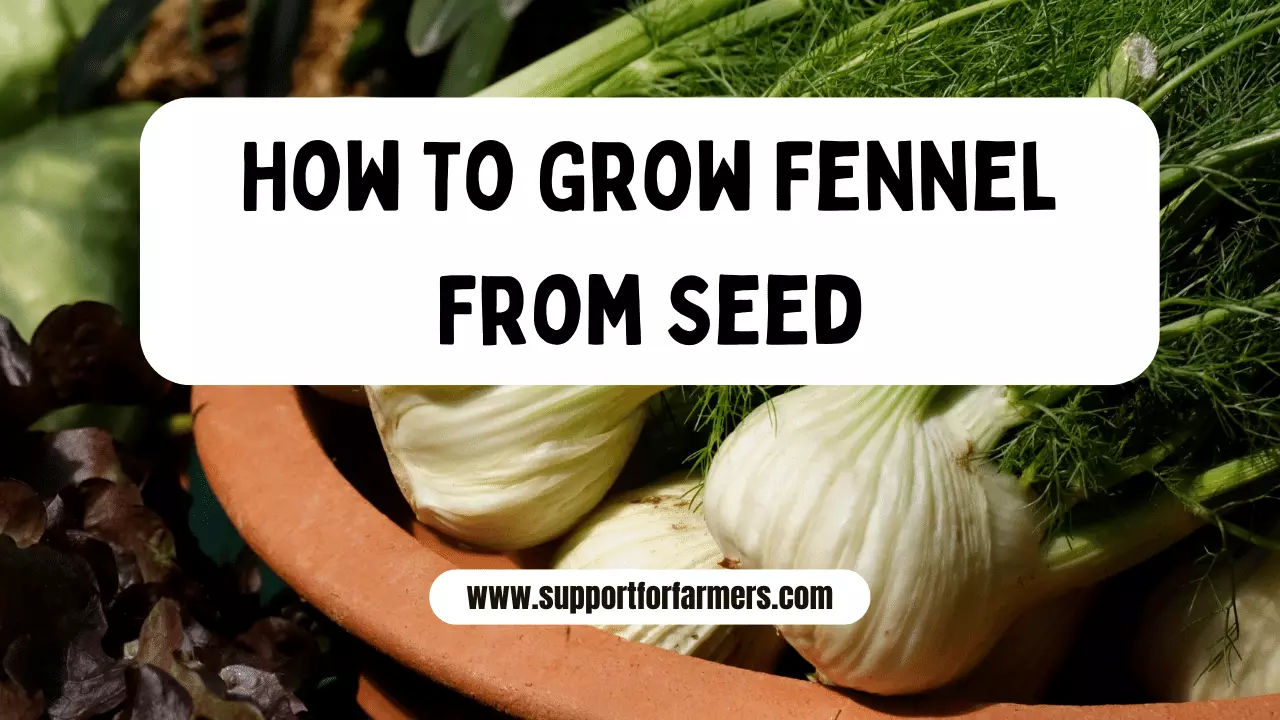Fennel is a beautiful and fragrant herb that can add a lovely liquorice flavour to your cooking. It’s also relatively easy to grow from seed! This article will cover everything you need to know about growing fennel from seed so you can enjoy this wonderful herb in your kitchen.
Fennel (Foeniculum vulgare) is a flowering plant species in the carrot family. It is a tough perennial herb with feathery leaves and yellow flowers.
What Is Fennel And What Are Its Benefits?
The parsley family includes the flowering plant fennel. It is native to the Mediterranean but can now be found in other parts of the world. The fennel plant grows to a height of about 2-3 feet and has slender, green leaves. The plant produces small, yellow flowers that bloom in the summer.
The bulbous root of the fennel plant is the part of the plant most commonly associated with its culinary application. The root is utilized in many savory dishes for its sweet, anise-like flavor. Fennel seeds are also commonly used as a spice and have a similar flavour to the root. Fennel has a lot of other purposes than being a spice.
With a milder flavor than the root or seeds, fennel plant leaves can be used as a herb. The leaves can be garnished with or added to salads. The plant’s stalks can be prepared and eaten like celery.
Fennel bulbs can be roasted, braised, or sautéed and make a great addition to many dishes. Fennel is a good source of fibre, vitamins C and A, potassium, and manganese. It also contains phytonutrients that have been shown to have anti-inflammatory, antioxidant, and anticancer properties.
How To Sow Fennel Seeds?
To sow fennel seeds, start by mixing the seeds with some sand to make it easier to spread them evenly. Then, sprinkle the seed mix over the soil in your desired area and lightly pat down. Till the seeds sprout, keep the soil continually moist. When the seeds have sprouted, you should give the young plants a spacing of around 6 inches. If necessary, fennel can be replanted. Grow the plants until they are between 12 and 18 inches tall before picking.
Caring For Young Fennel Plants
Young fennel plants should be frequently watered and fertilized every two weeks. Make sure the plants have adequate of drainage, and keep the soil damp but not wet. Thin the plants out to a spacing of eight to ten inches when they reach a height of six inches. Once fennel gets established, it does not require frequent watering because it can withstand periods of drought. Watering your fennel more frequently may be necessary during dry spells.
When To Harvest Fennel?
Throughout its growing season, fennel can be picked whenever it is ready. It’s preferable to gather your harvest while the plant is flourishing and its leaves are a lush, dark green. Fennel loses flavor and begins to bolt (grow a stalk bearing flowers) if you let it go too long before harvesting.
Fennel Recipes
Fennel is an aromatic and flavorful herb that may be utilized in a wide variety of dishes. Some suggestions for cooking with fennel:
- Fennel goes great in salads, especially when combined with other fresh herbs like parsley or basil.
- Try using fennel instead of celery in a soup or stew recipe.
- Make a simple but flavorful fennel and tomato pasta dish by sautéing diced fennel and tomatoes with garlic and olive oil. Serve over your favourite type of pasta.
- For a fresh take on traditional roasted veggies, try roasting fennel, potatoes, carrots, and other root vegetables. The fennel will give the food a nice anise flavor.
Conclusion
Fennel may be grown from seed effectively with a little bit of time and care. You’ll quickly be on your way to savoring the delicate flavor of this distinctive herb by paying attention to these straightforward suggestions.
Is it difficult to cultivate fennel?
It’s not hard to cultivate fennel. They thrive in warm, dry conditions with plenty of sunshine. If the land is fertile, they will thrive. Once or twice a week during dry spells, water them.
Will fennel be available every year?
Fennel is a biennial herb that returns every year. The plants, however, only have a shelf life of three to four years before they need to be replaced. Growing fennel as an annual is necessary due to the fact that the bulb is picked in its whole for culinary purposes.
